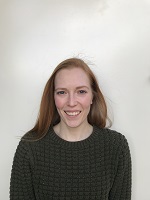The public defence will be held as a video conference over Zoom.
The defence will follow regular procedure as far as possible, hence it will be open to the public and the audience can ask ex auditorio questions when invited to do so.
Click here to participate in the public defence
Due to copyright reasons, an electronic copy of the thesis must be ordered from the faculty. In order for the faculty to have time to process the order, it must be received by the faculty no later than 2 days prior to the public defence. Orders received later than 2 days before the defence will not be processed. Inquiries regarding the thesis after the public defence must be addressed to the candidate.
Digital Trial Lecture - time and place
Adjudication committee
- First opponent: Associate Professor Andreas Lundqvist, Karolinska Institute, Stockholm, Sweden
- Second opponent: Dean Hans-Christian Åsheim, Kristiania University College, Oslo
- Third member and chair of the evaluation committee: Professor Marit Inngjerdingen, Institute of Clinical Medicine, University of Oslo
Chair of defence
Professor Inger Sandlie, Department of Biosciences, University of Oslo
Principal Supervisor
Professor II Johanna Olweus, Institute of Clinical Medicine, University of Oslo
Summary
Immunotherapies have drastically improved the prognosis for many patients with widespread (metastatic) cancer. Engineering of patient immune cells to equip them with “genetic missiles” targeted to specific cancer types represents a recent successful form of immunotherapy. This thesis concerns the development of novel technologies to identify such “genetic missiles”, called T-cell receptors (TCRs), as well as identification of candidate therapeutic TCRs and their pre-clinical validation. Co-evolution between the patient immune system and cancer can prevent effective responses by patient immune cells, called T cells. T cells from healthy blood donors are, on the other hand, unbiased by immunosuppressive defense mechanisms developed by cancer cells. We invented new technology that allows identification of tumor-reactive T cells and their TCRs from healthy blood donors. Using this method, we demonstrated identification of TCRs that were reactive to many tumor-specific mutations (neoantigens) that were ignored by patient tumor-infiltrating T cells. We furthermore optimized the protocol for identification of such TCRs with improved throughput. We identified two candidate therapeutic TCRs, for treatment of acute myeloid leukemia (AML) and melanoma, respectively. A pipeline for pre-clinical evaluation of safety and precise mapping of amino acid reactivity was established. While MAGE-A4 TCR T cells showed cross-reactivity to unintended targets and was excluded from further clinical development, we did not observe undesired reactivity of FLT3- TCR T cells in our studies. FLT3-TCR T cells efficiently and selectively killed leukemia cells from AML patients in vitro, providing a rationale for an “off-the-shelf” FLT3 T cell receptor-based therapy. Intracellular FLT3 expression in leukemic cells suggested that targeting FLT3 by a T cell receptor-based strategy might be advantageous compared to therapeutics that can only target cell surface FLT3.
Additional information
contact the Research Support staff
